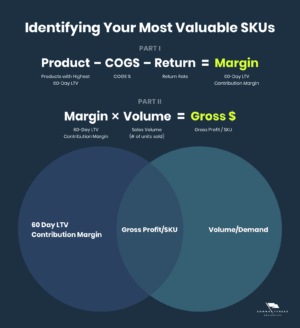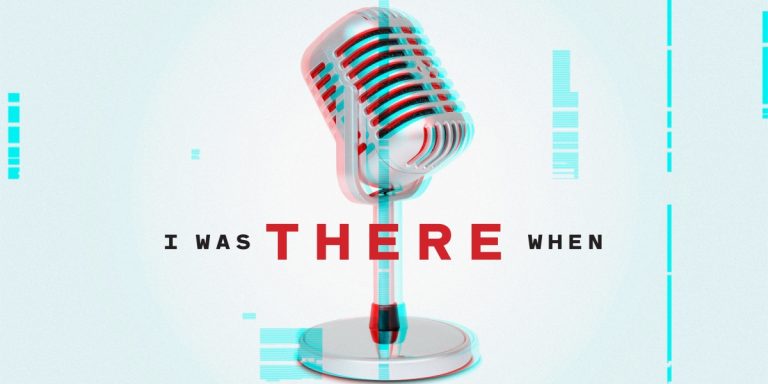
John Mackey Delivers Powerful Business Insights at Make it Big 2022
Get The Print Version
Tired of scrolling? Download a PDF version for easier offline reading and sharing with coworkers.
Add your info below to have the PDF sent to your inbox.
John Mackey truly needs no introduction. His resume alone speaks for itself.
Mackey, the co-founder of Whole Foods Market, has been recognized as one of Fortune’s “World’s 50 Greatest Leaders,” Ernst & Young’s “Entrepreneur of the Year Overall Winner for the United States,” Institutional Investor’s “Best CEO in America,” Barron’s “World’s Best CEO,” MarketWatch’s “CEO of the Year,” Fortune’s “Businessperson of the Year” and Esquire’s “Most Inspiring CEO.”
That’s only a small glimpse into the accomplishments of his 44-year career at the helm, too.
At BigCommerce’s 2022 Make it Big Conference, Mackey sat down with BigCommerce CEO Brent Bellm to discuss the company’s history, the importance of ecommerce, the future of the grocery industry and what it takes to be a successful business owner.
John Mackey’s Key Takeaways at Make it Big 2022
John Mackey has built Whole Foods Market from a single store in Austin, Texas in 1978, into a Fortune 500 company, which went public in 1992, and was purchased by Amazon in 2017.
Here are a few key takeaways from Mackey’s Make it Big keynote session:
Brent Bellm: From [your] origin story, what was the best thing that you or Whole Foods Market did to go from a founder [who] created one or two stores to hundreds of stores and a public company? Was there an inflection point or a decision that was essential for you to be able to take this into really a leading grocery retailer in the U.S.?
John Mackey: “I think there were a number of inflection points over that history to get to where we were. If you want to ride a big wave, you’ve got to get into a place that’s producing big waves. And we were fortunate in that the world was ready to make this shift and Whole Foods partly created that shift… but our success was partly the fact that people were ready for that shift. And we saw that earlier than other people.
“Any type of entrepreneur needs to innovate in ways that were ahead of the time. If you see something everybody else sees, then you’re really not innovating anything. You’re just a follower. You don’t have first mover advantages. Oftentimes, you’re just not going to be as successful. Sometimes it happens, but most of the time the people that follow just don’t. They don’t optimize at the highest levels.
“So it helps a lot that we were in a time when it was ripe for this to happen.”
Looking to watch more Make it Big 2022?
REGISTER FOR FREE
BB: What do you think it will be, 10, 20 years from now for grocery retail?
JM: “The efficient model would be to set up dedicated, small distribution centers that would serve a market that could do it far more efficiently than an ongoing supermarket could do it.
“We locate Whole Foods markets in good retail locations, which are expensive.You can do it in warehouse locations, which are not nearly as expensive. So that’d be a far better way to do it.
“I think it’ll transition away from that to models that are far more effective at picking, packing and delivering.”
BB: What advice would you have to any business owner in articulating a good, higher purpose for their business?
JM: “It starts with their value creation. What value are they creating? Why do they exist? What type of value are they creating? There are some businesses that you could say have more negative effects than positive effects — perhaps, maybe, say, the tobacco companies, perhaps — but in general, businesses are all creating value for people. And so the higher purpose is recognizing that value creation can link it to a more transcendent virtue that they’re part of.
“So say Whole Foods’ higher purpose is to nourish people and the planet. Well, nourish is a good word because there’s so many different levels we can nourish people. We can nourish them with healthy food. We can nourish them with the environment that we create in our store so they’re beautiful. We can nourish our team members. We can nourish all of our suppliers.
“People. So it’s all the different stakeholders, not just your customers. They’re all people, too. And the planet. The planet is partly the great environment that we’re all part of, but it also represents every country, every race, every human, every species.
“And so we exist to help try to nourish things. Nourish is good. We all can be a force for good on this planet. And you should tie your purpose to some type of value creation. It’s doing good in the world or get out of your business.”







